One of the oldest cuisines existing since almost time immemorial is the cuisine from the state of Karnataka. Standing seventh in terms of size in the country, diversity seems the second name when it comes to the culinary fare that exists in the state. While rice, coconut and sea food are the soul of South Canara, the fare in North Karnataka has wheat, jowar, legumes and peanut in dominance. With influences from the neighboring states of Tamil Nadu, Andhra Pradesh, Kerala and Maharashtra, the cuisine of the state is a potpourri of flavors, cultures, traditions and aromas.
I recently visited Hubli and a few places around this vibrant city in North Karnataka. Locally known as Uttara Karnataka, the region mainly has hot and dry climate as it is mostly a semi-arid plateau and hence suitable for growing crops like jowar, bajra, maize and peanuts apart from the being the land of the famous Byadgi red chillies.
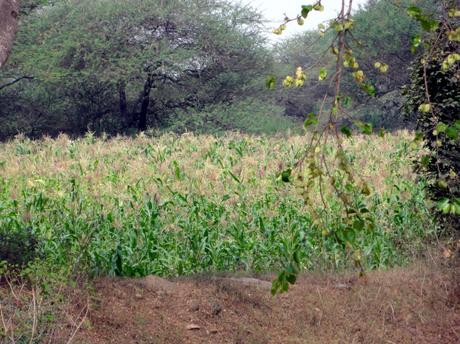
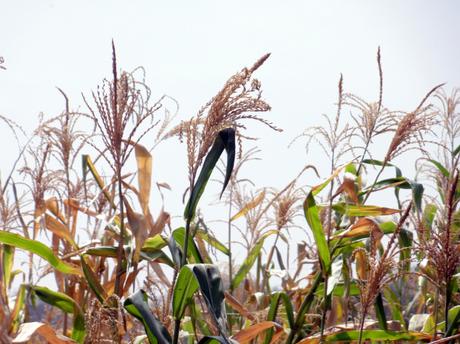
There nothing like sampling local cuisine in order to soak in the history and culture of any place. Hence, trying out the local cuisine and sampling the flavors distinct to the region was high on my agenda on this trip too. So during our first break at Hanagal after visiting an ancient temple, my eyes quickly looked around for a place where we could savor the typical ‘Khanavali’ food. ‘
Khanavali’ is the name given to the food and the places that serve the authentic North Karnataka fare. Usually served in small unassuming restaurants, the food typically consists of jowar rotis, a few salads, vegetable and lentil dishes. After making some enquiries, we did chance upon a Khanavali where we were served a truly wholesome and sumptuous meal.
The meal ranked high in terms of nutrition and fiber as there was as many as three vegetable dishes, two made of legumes and about three salads! While all the vegetables were farm fresh, the salads had some unique ingredients like radish leaves that were simple yet tasty. There were also some extremely authentic chutneys made from green and red chillies which I personally loved. The preparation, albeit spicy was delectable. The heart of the meal were of course the ‘jowar rotis’ that were promptly ‘dished’ one after another piping hot. Rice with rasam followed by curd and dessert was a perfect finish to a great healthy meal.
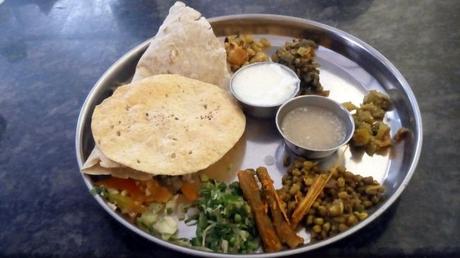
Continuing with our love affair with the jowar rotis, we did have another wonderful experience with a local family on the outskirts of Hubli. It is a common sight to see women here sit outside their homes leisurely sift and clean their staple food, Jowar. I spotted a few of them just outside a flour mill effortlessly processing the pearly millets and we got talking. The family was gracious enough to invite us into their house to give us a demo of how these wonderful rotis were made.
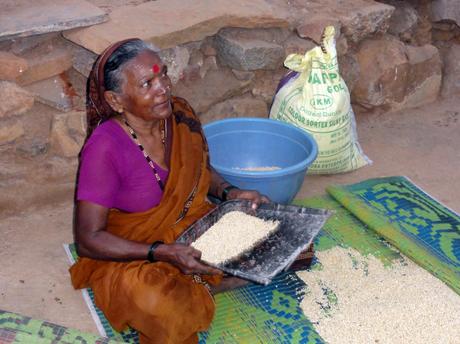
The flour is first partially cooked in boiling water and the hot dough is kneaded and flattened out by hand, after which it is cooked on a thick bottom cast iron “tawa”. The dexterity with which the roti was prepared was nothing short of amazing as handling jowar is not really very easy considering that it is gluten free and does not have the intrinsic quality of elasticity like wheat. After making the roti, she quickly doused it in dollops of ghee and rolled it with homemade sweet and sour lemon pickle into a ball. It is apparently the traditional way of eating a roti there!
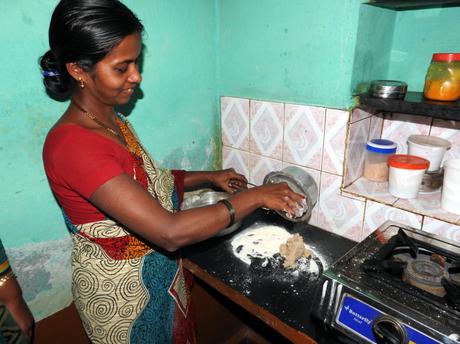
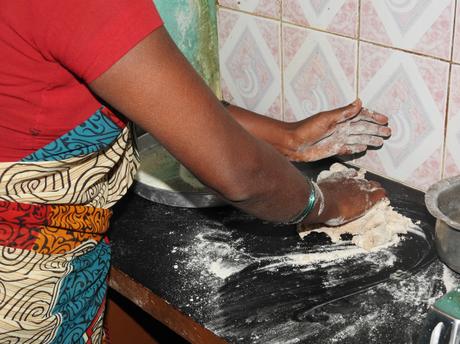
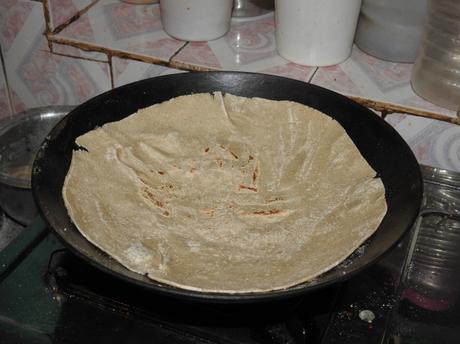
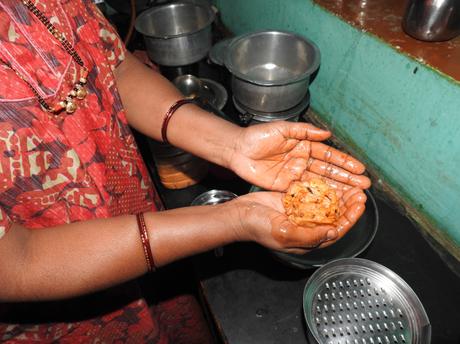
Given that there is so much emphasis today on organic, gluten free foods and “going back to one’s roots” for healthy fresh food; a lot can be done to promote the cuisine of North Karnataka. The concept of Khanavali food and also the specialty powders and spices prepared with lentils, pulses and peanuts that are again an integral part of the food are highlights that can be promoted.
The food here is wholesome and nutritious to say the least; the vegetables grown in the region are known to rank high in taste as the climate is dry and apparently the vegetables do not absorb much water thereby retaining their flavors. Rich in antioxidants, fiber, protein and minerals like calcium and iron, latest studies reveal that the gluten free Jowar does wonders for heart health.
A sustainable model of rural tourism can be followed on the lines of other states like Punjab where there are ‘food trail’ programs that promote the efforts of farmers while showcasing local produce, ingredients and traditional dishes. With the focus on traveling being on offbeat experiences, it would be a great idea to have a home visit to showcase the local cuisine and reveal some best kept secrets!
Filed under: Food Tagged: gluten free, Hubli, jowar roti, Karnataka tourism, Karnataka travel, Khanavali, North Karnataka cuisine, organic, rural tourism



